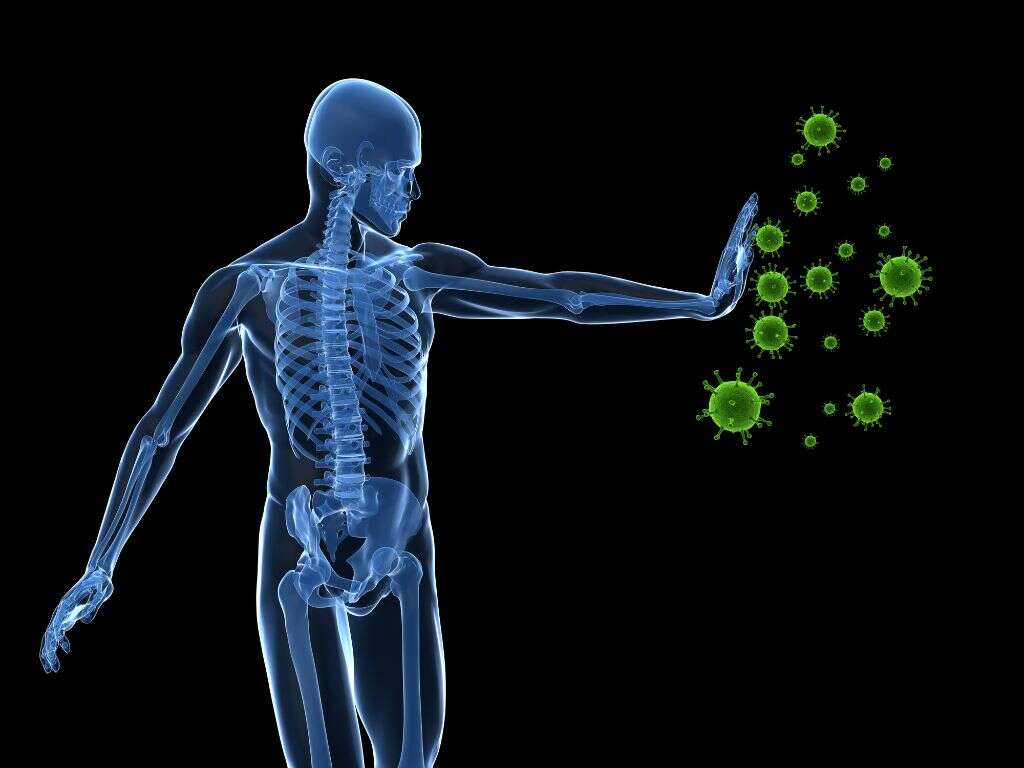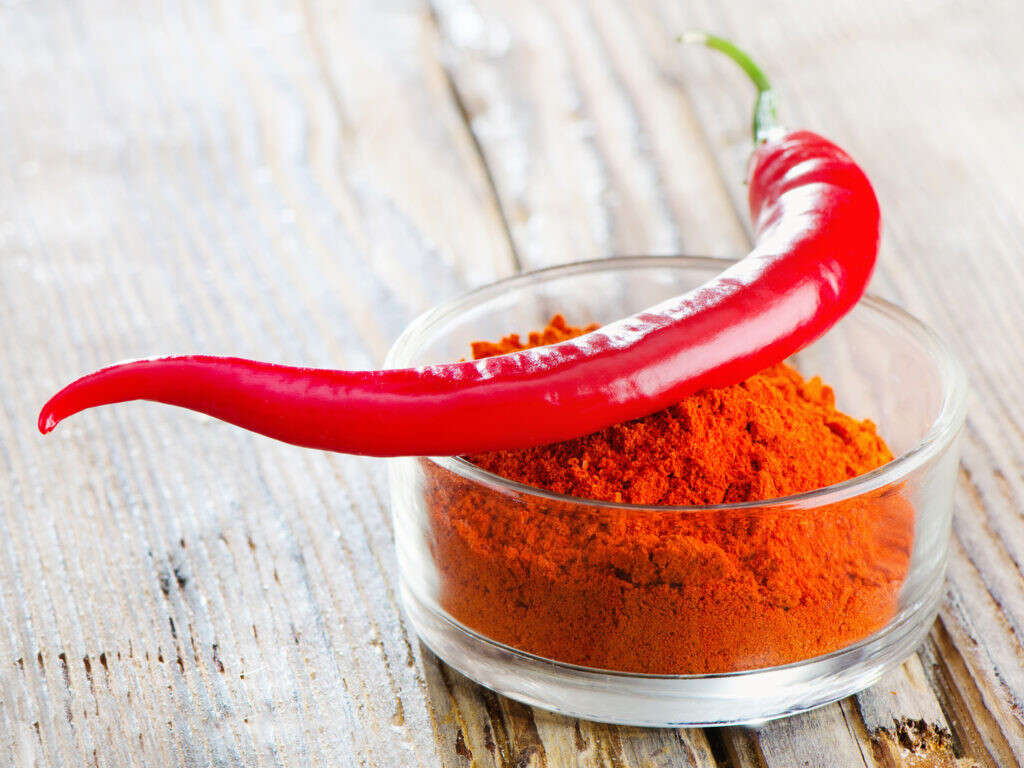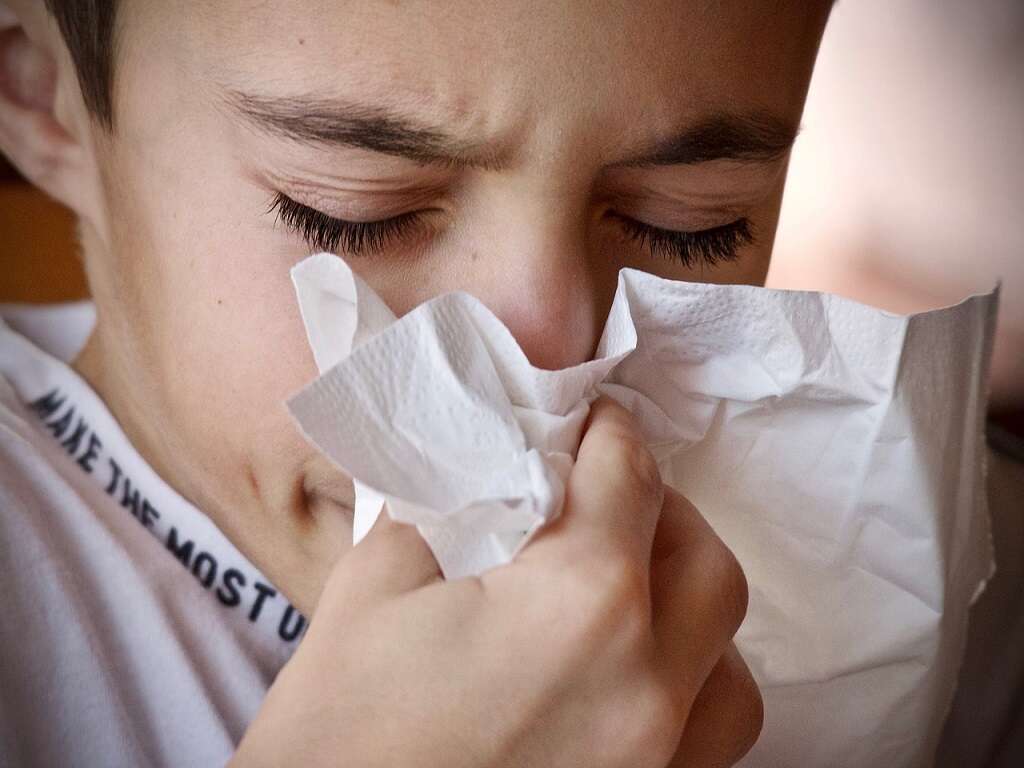10 Chicken Pox Symptoms
Chicken pox is a relatively common illness that is caused by the varicella-zoster virus. It is typified by a rash and spots/blisters that can be very itchy. Other symptoms will include fevers and aching joints and muscles. It is not usually serious, and will usually pass harmlessly before long.
Medication is available to hasten recovery and soothe symptoms. While chicken pox is not usually dangerous, it can be a danger to people that are particularly vulnerable.
Patients should be observed to be sure they haven’t developed any symptoms that suggest a serious condition. It is highly contagious and is common among children as it can spread quickly through schools.

Symptom #1: Malaise
Every now and then we might just not feel too great. It can be difficult to put a finger on exactly what the symptoms are and it can be even harder to pinpoint a cause. This general feeling of being unwell is known as malaise and it can be caused by a wide range of factors.
Quite often, it can be a result of simply being run down, or maybe having picked up a minor bug. At other times, though, it can be a symptom of something more concerning. People that catch chicken pox will often complain of a feeling of generally being unwell.

Symptom #2: Aching Muscles
It’s not unusual to wake up in the morning feeling aches and pains in the body. These are often unexplained and will usually pass in time, and they tend to happen more frequently as we get older. In addition to being a symptom of just getting older, though, they can also be a symptom that you have an illness.
When a pathogen gets into the body, the immune system gets set into action to deal with it. One weapon it uses against pathogens is chemical warfare, and this results in chemicals being released through the muscles of the body. These chemicals cause aches and pain.

Symptom #3: Appetite Loss
A good appetite is a good sign that all is well with you. It shows that your body is functioning normally and requires energy and nutrition to keep going. Should you lose your appetite for some reason then this is a sign that all is not well. It can be caused by a wide range of factors, including chicken pox.
Patients that catch chicken pox will often complain that they just don’t feel like eating. This can make the problem worse, though, because the body needs nutrition to help it in its fight against the disease. The patient should always try to eat as much as possible regardless of whether or not they feel like it.

Symptom #4: Headache
Headaches are a very common symptom. They are still largely a mystery and it can be very difficult to treat them, although some painkillers can provide relief from the discomfort. They can affect people of all ages, including otherwise healthy people and those that are in the prime of their lives.
Headaches are often caused by illnesses as well. Depending on the severity of the headaches, a doctor might prescribe medication to help relieve you of the pain. In the meantime, of course, they will also be trying to treat the underlying cause, such as chicken pox.
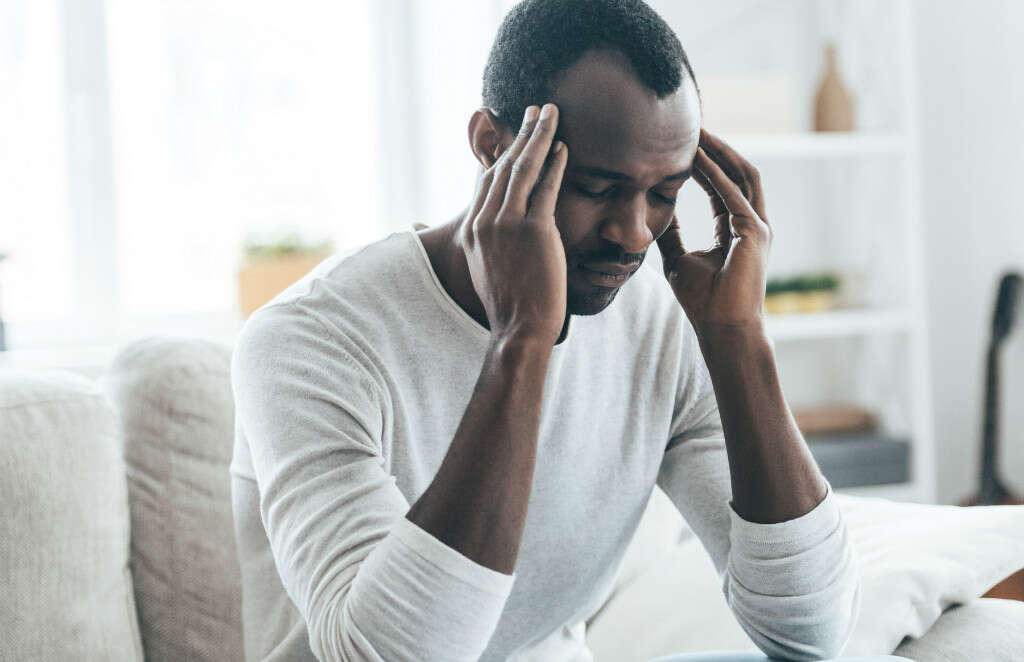
Symptom #5: Fever
When the chicken pox virus gets into the body, it will not be long before it is discovered. Once discovered, our natural defense system gets to work in dealing with the intruder. We have several methods of naturally dealing with invading pathogens, and a fever is one of them.
A fever occurs when our natural defense system raises the temperature of our own bodies. This helps to make the body an inhospitable place for pathogens. Doing this should slow down their spread within the body or, even better, kill them altogether. In chicken pox, fever tends to be worse in adults than in children.
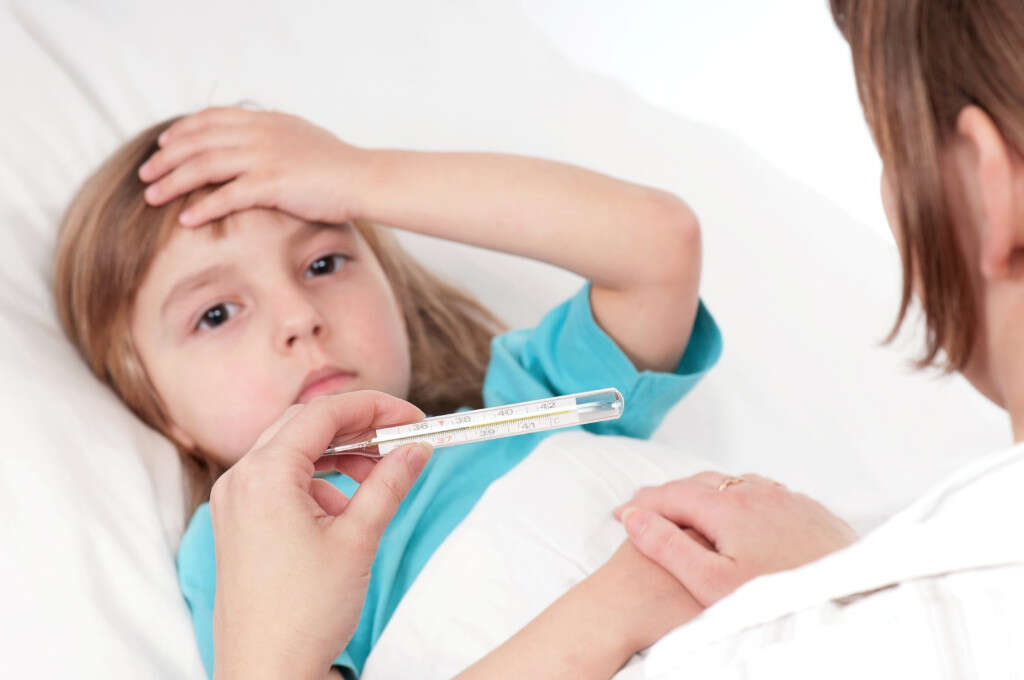
Symptom #6: Nausea
It is quite common that we will feel nauseous when we are ill. Indeed, nausea is often how we first realize that we are sick at all. We will usually feel it as a sensation of light-headedness and maybe a feeling that we need to vomit. In some cases, it can be debilitating and leave the patient unable to do anything.
In some cases of chicken pox, the patient will experience nausea. This can also sometimes result in vomiting. While this is not usually something to be alarmed by, it can be of concern if symptoms are severe and persistent. It can also be caused by some medication, so let the doctor know if you have had bad reactions to medications in the past.
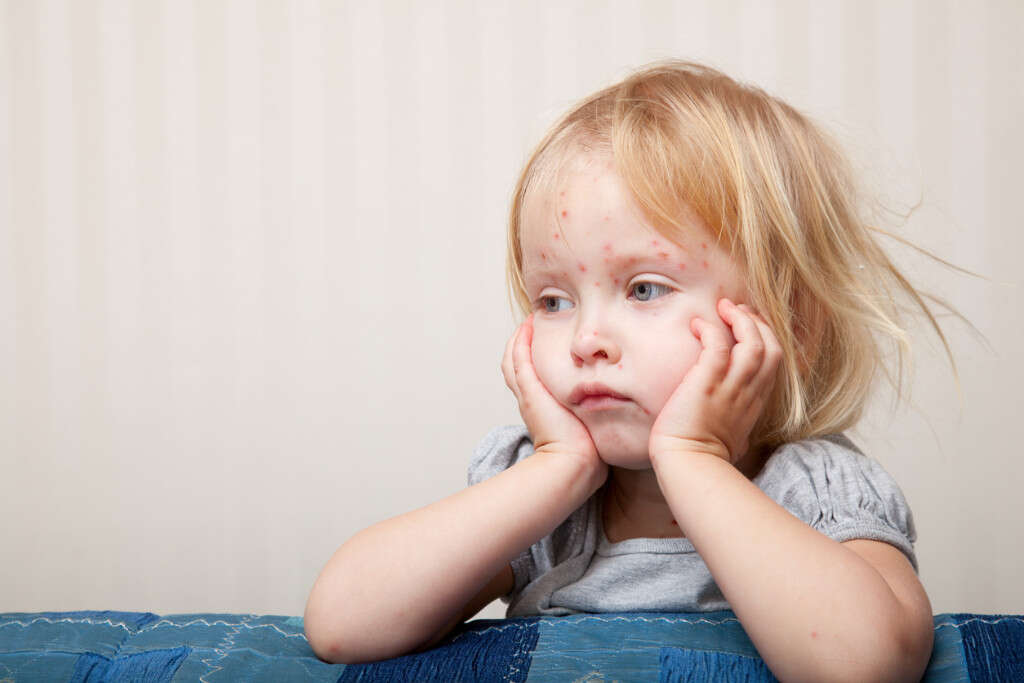
Symptom #7: Rash
Rashes usually occur as a reaction to something that is on the body, or in the body. They can often be caused by a chemical on the skin or maybe an allergen. They can also be caused when pathogens are able to enter the body and are a tell-tale sign of many types of illness. Chicken pox is included in these illnesses.
The severity of the rash will vary from person to person. In some cases, it will be just a few spots in a particular area of the body. In other cases, the entire body might be covered in a rash. It can also be very itchy and patients are advised to try and resist the temptation of scratching them.

Symptom #8: Blisters
Blisters are small sacs of fluids that are located just under the skin. Among the most common types of blister are those caused by friction, such as when wearing a new pair of shoes. They can also be caused by burns, by bites, and by a wide range of other factors. They are also a common symptom of chicken pox.
The blisters associated with chicken pox will likely form on top of the spots that are also a symptom of the disease. These can be extremely itchy and it can be all but impossible to resist scratching them, especially for young children.

Symptom #9: Scabs and Crusting
Scabs will often form after an injury that has caused the skin to become broken. They are made of clotted blood, among other things, and help to protect the damaged area below while it is repaired by the body. Once the repairs are complete, the scab will simply fall away.
The spots and blisters that come with chicken pox will also need healing. A crust is likely to form over blisters, particularly those that have burst, and scabs are also likely to form. They can be itchy, but they should be left where they are until they fall off on their own accord.
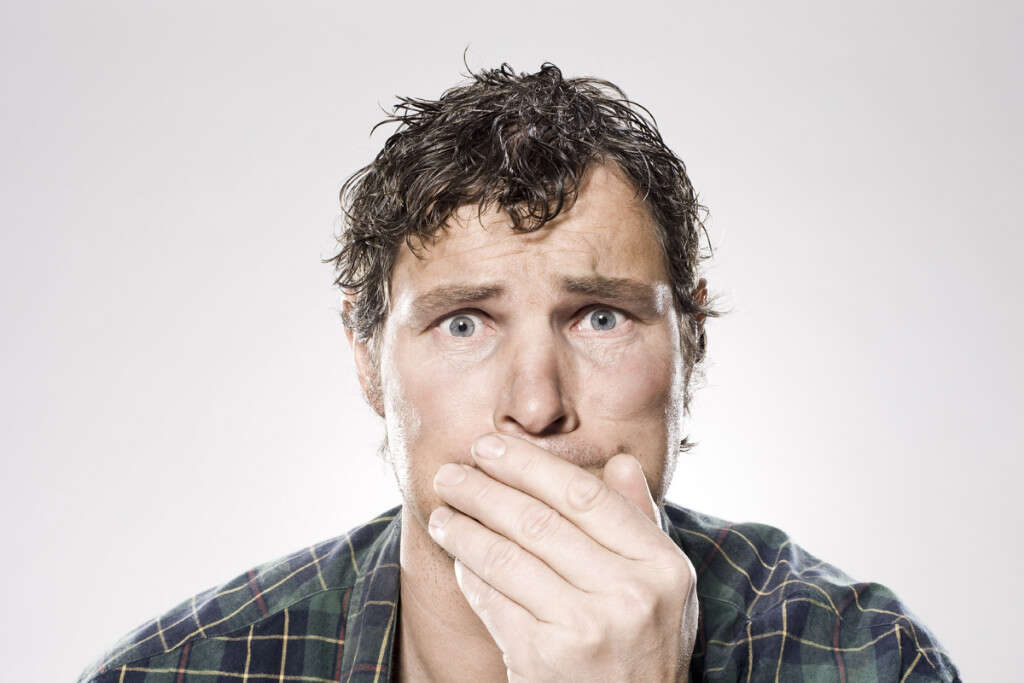
Symptom #10: Difficulty Breathing
For healthy adults and even children over a certain age, chicken pox is not usually something to be overly concerned about. It is likely to be uncomfortable, and even embarrassing aesthetically, but it will usually pass with no permanent harm done. That is not to say that it cannot be dangerous, though, so it should always be treated with respect.
For the very young, the very old, and the sick, chicken pox can be dangerous. It can cause an infection of the lungs and an inflammation of the brain along with other potentially serious problems. If symptoms such as breathing difficulties occur in a patient with chicken pox, you should seek emergency medical attention as soon as possible.






